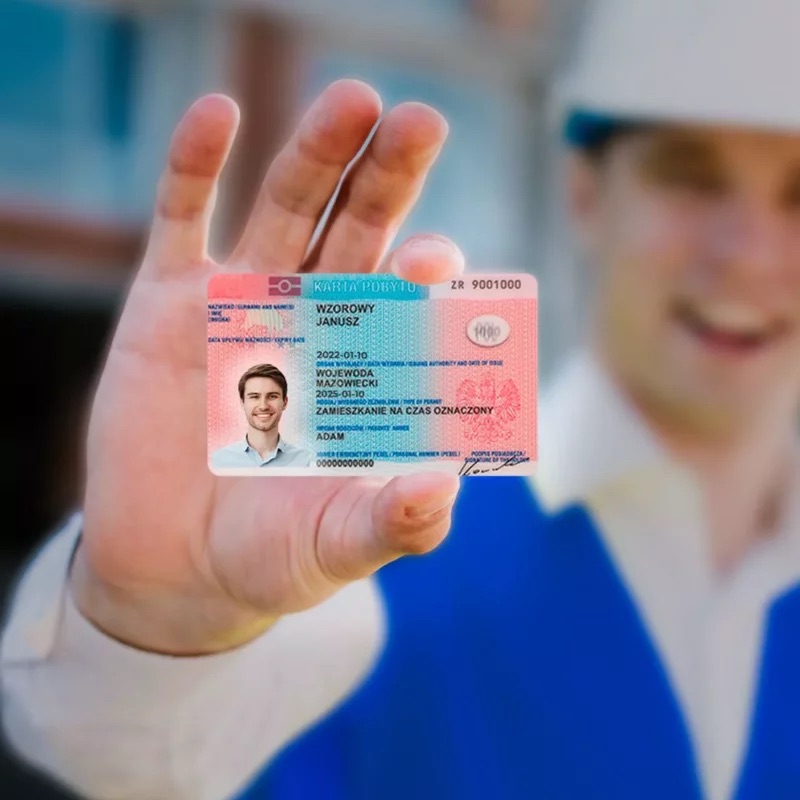A graduate of the Faculty of Law at the University of Wrocław (Uniwersytet Wrocławski), one of Poland's leading universities. Gained initial hands-on experience through a court internship followed by training in a law office. Worked for two years at a law firm specializing primarily in legalization of foreigners' stay in Poland, as well as civil, criminal, and family law cases. Acquired valuable experience under the guidance of two experienced attorney-mentors, one of whom previously served as an inspector at the Voivodeship Office in Wrocław (Urząd Wojewódzki we Wrocławiu). These in-depth skills and knowledge laid a strong foundation for launching an independent legal practice and establishing his own firm.
Case: Successful Appeal of Refusal to Grant a Temporary Residence and Work Permit in Poland
Description of the situation and client's problem
On March 27, 2023, a citizen of Ukraine submitted an application to the Lower Silesian Voivode to obtain a temporary residence and work permit. However, on May 20, 2023, a decision was received to refuse to grant such a permit. The client faced a serious problem: the inability to legalize their stay and work in the Republic of Poland due to this refusal.
Analysis of the situation and key reasons for refusal (as determined by the Voivode)
The Voivode justified the refusal by citing a number of grounds:
- Non-compliance with work conditions: It was noted that the employer did not specify the necessary data on remuneration and working hours in the information provided, which made it impossible to check compliance with the conditions.
- Formal deficiencies in the application and lack of documents: The application contained formal deficiencies that were allegedly not corrected within the set deadline, and documents confirming compliance with the conditions for granting the permit were not provided.
- Data inconsistency: The purpose of the stay stated in the application, in the Voivode's opinion, did not correspond to the actual purpose.
- Lack of mandatory confirmations: No proof of medical insurance, stable and regular source of income, or confirmation of a place of residence was provided, which are mandatory conditions.
The Voivode's decision was based on various articles of the Foreigners Act, specifically Art. 118, para. 4.
Desired Outcome:
Cancellation of the Voivode's decision and obtaining a temporary residence and work permit in Poland.
Responsible Lawyer:
Oleksandr Fraier — a lawyer specializing in migration law and the legalization of foreigners' stay in Poland.
Legal strategy and stages of the lawyer's work
In light of the received refusal, lawyer Oleksandr Fraier's legal strategy was aimed at a thorough analysis of the decision and effective preparation for an appeal to ensure a successful outcome for the client.
- Detailed analysis of the refusal decision: The lawyer meticulously reviewed all the stated reasons for the refusal and their legal justification. It was found that some of the reasons were based on the Voivode's incomplete understanding of the situation or on minor deficiencies that could be corrected.
- Collection and supplementation of evidence: The lawyer actively worked to collect and prepare all necessary additional documents that confirmed the client's compliance with all requirements and refuted the reasons for refusal.
- Preparation and submission of a successful appeal: The lawyer drafted and submitted a reasoned appeal to the Head of the Office for Foreigners within the 14-day period. The appeal contained clear legal arguments refuting each point of the Voivode's refusal and providing a complete package of evidence. It was emphasized that all requirements of the Foreigners Act were met or their fulfillment was properly confirmed.
Result: Thanks to the professional work of lawyer Oleksandr Fraier and the meticulously prepared appeal, the Head of the Office for Foreigners canceled the decision of the Lower Silesian Voivode to refuse to grant a temporary residence and work permit. The case was returned to the Lower Silesian Voivode for re-examination. As a result, the client successfully obtained a temporary residence and work permit in Poland.
This case is a vivid example of how qualified legal assistance and a well-thought-out strategy can ensure a positive outcome even in complex migration cases. It demonstrates that with proper legal support, it is possible to successfully appeal an unlawful decision of a state body and restore the client's right to legal stay and employment.































